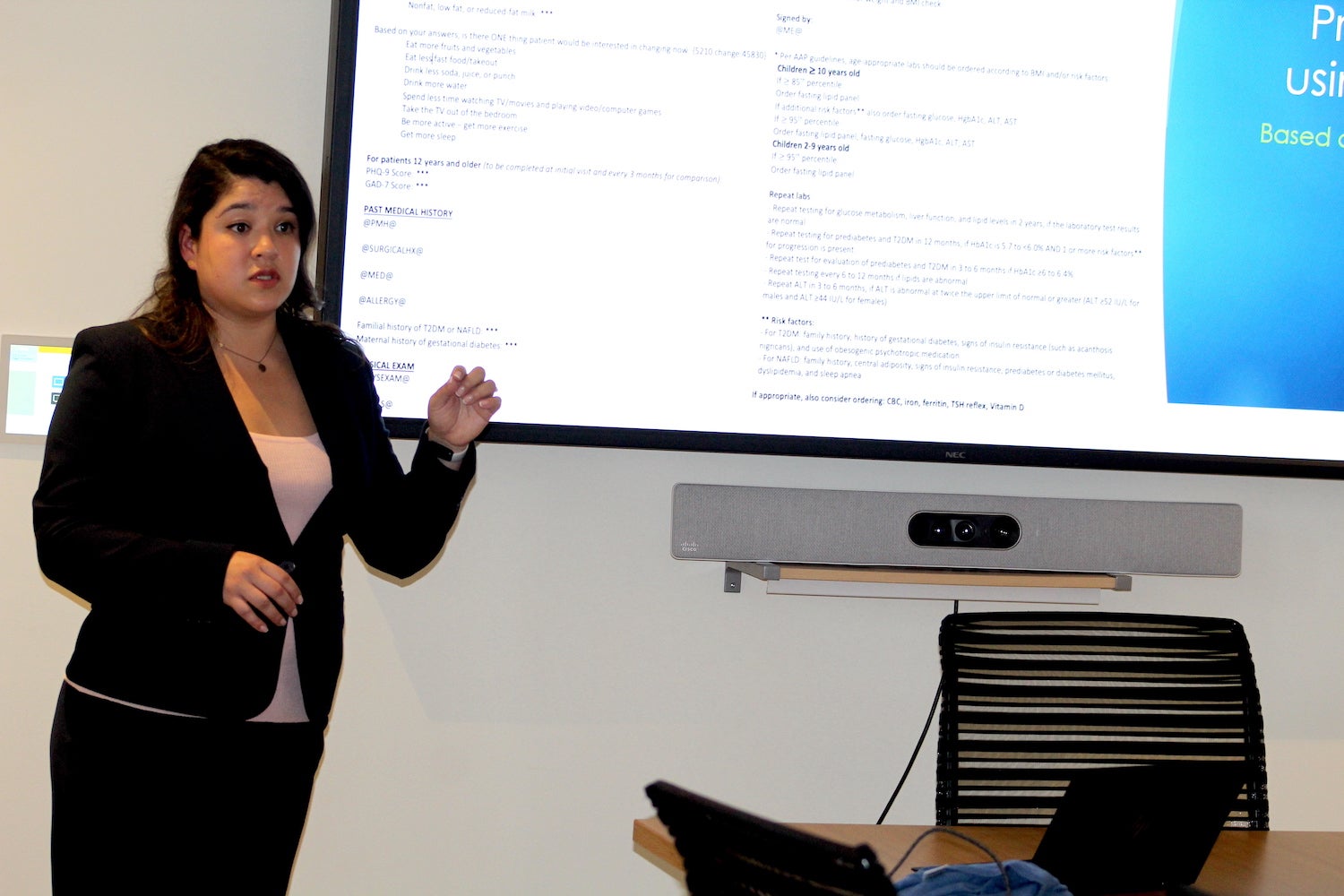The prevalence of childhood obesity has increased more than eight times in the last 50 years, affecting about 10 percent of infants and toddlers, and 17 percent of children and teens. Those facing obesity as children often do as adults, afflicting about 30 percent of the population, presenting hosts of health problems including diabetes, heart disease and more.
University of Rhode Island College of Nursing doctoral candidate Carolina Herrera has found that health care providers early in a child’s life can play a critical role in reducing obesity and setting them on a health course. Herrera recently presented her research into childhood obesity at the Nursing Education Center in Providence as she works to finish her doctor of nursing practice degree.
In 2021, Herrera began following a cohort of young patients at Hasbro Children’s Hospital who had been diagnosed as overweight or obese. She found that the young patients were largely not complying with traditional treatment options. Just half of the patients and their parents scheduled follow-up appointments at all, and just 26 percent actually attended. For a second follow-up appointment, that number dropped to just 8 percent.
Herrera designed a new treatment plan, and urged pediatricians to encourage young patients to follow the specific template. Her plan included labs and diagnostic imaging, along with a specific nutrition plan, weight and body mass index monitoring, regular tele-medicine visits with providers, and a weight loss app.
 After implementing the plan and convincing health care providers to stress its use with patients, Herrera found an increase in compliance a year later. More patients were following up with appointments, and the results have followed. Most participants significantly reduced their weight and cholesterol levels, and those with fatty liver disease decreased their liver enzymes. Two young patients with childhood diabetes improved to pre-diabetic conditions; and four of six who had been pre-diabetic completely reversed their conditions. A lot of the success stems from a holistic approach to communicating with young patients and their families.
After implementing the plan and convincing health care providers to stress its use with patients, Herrera found an increase in compliance a year later. More patients were following up with appointments, and the results have followed. Most participants significantly reduced their weight and cholesterol levels, and those with fatty liver disease decreased their liver enzymes. Two young patients with childhood diabetes improved to pre-diabetic conditions; and four of six who had been pre-diabetic completely reversed their conditions. A lot of the success stems from a holistic approach to communicating with young patients and their families.
“It’s a group effort for everyone, from the secretaries in the office to the doctors,” Herrera said. “Keep an open mind with patients, and be respectful of their wishes, and continually monitor to make sure they are following up.”
Herrera, who is a nurse practitioner with the Santiago Medical Group in Pawtucket and North Providence, previously earned her master’s degree as a family nurse practitioner from URI. She plans to continue to study the template she created with her patients at Santiago to further reduce the incidence of childhood obesity.

